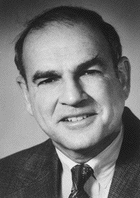- Me: Is there anything new to report about
your vaccine? Are there any newly pioneered domains of
- research being applied to your vaccine
today?
-
 Dr.
Blumberg replied that the vaccine has been in effect for over 10 years, and that he is
proud of recent
Dr.
Blumberg replied that the vaccine has been in effect for over 10 years, and that he is
proud of recent
- reports from several locations
worldwide, telling of HBV frequency rates dropping from 12-15% in areas such as
- Korea and Taiwan to a mere 1-2%. In Japan,
rates have dropped from 2-#% to 0.1-0.2% incidence. A dramatic drop
- of HBV carriers has occured in North
America as well.
-
In terms of new research, there are always studies going on to improve on the
effectiveness of the vaccine in
- order to better preventative techniques.
Taiwan recently came out with a population study in which the national
- immunization policy was examined for
efficacy. Results illustrated a 2/3 incidence drop of 40-50 year olds with
- liver cancer due to their having been
immunized on or before age 10. Dr. Blumberg then emphasized the fact that
- liver cancer is responsible for 85% of the
world's primary cancer cases, second only to lung cancer. The fact that
- liver cancer can be controlled in this way
gives future generations hope for successful prevention of something that
- has in the past thought to have been
incurable.
-
- *Me: If the HBV vaccine can be used to study
possible ways of combatting cancer. Is there any way its
- principle methods can be applied to a future
HIV vaccine? If HBV is even more infectious, why hasn't it
- received as much press?
 Dr. Blumberg replied, "People aren't as upset
by it" and therefore are less likely to fund it. Reality is that
Dr. Blumberg replied, "People aren't as upset
by it" and therefore are less likely to fund it. Reality is that - HBV affects the same population group as
HIV, but is not as prevalent a problem in North America as it is
- in Asia or Africa. The initial response to
AIDS occurred due to the fact that everyone seemed to die from HIV.
- Acute Hepatitis B is usually cured, and
incidence of chronic Hepatitis B varied as well as its mortality rates.
- For most people, AIDS is a scarier thing.
-
- *Me: Are there any barriers to the success of
your vaccine today?
 Not everyone responds to the vaccine, although it has a
success rate of about 95%. There is a possibility
Not everyone responds to the vaccine, although it has a
success rate of about 95%. There is a possibility - for the need to develop a new vaccine
should HBV start to become resistant to the current vaccine. However,
- that does not seem likely for sometime.
What does pose a great problem today are countries such as those
- in Africa, where there are only 4-5
vaccination centers for 30-40 countries. There is a great economic barrier
- there in comparison to Asia, India being
an exception where immunization programs are nonexistent as well.
-
- *Me: OK. Now I want to get to what the other
interview didn't dare ask. I'm curious. Where does one keep a
- Nobel Prize? Is it like an Oscar, displayed
on your mantle somewhere?
 The Nobel Prize is actually a big gold medallion,
and right now I think it's sitting in a safe in Philidelphia.
The Nobel Prize is actually a big gold medallion,
and right now I think it's sitting in a safe in Philidelphia.-
- *Me: When you are not busy saving people's
lives, what do you like to do for fun?
 Dr. Blumberg told me he enjoyed being in nature:
canoeing, hiking, and biking.
Dr. Blumberg told me he enjoyed being in nature:
canoeing, hiking, and biking.-
- *Me: I know you've travelled almost
everywhere in the world. But if you could choose to be somewhere right
- now, where would it be?
 Home in Philidelphia with my wife (so sweet!) Dr.
Blumberg also mentioned wanting to visit his four children,
Home in Philidelphia with my wife (so sweet!) Dr.
Blumberg also mentioned wanting to visit his four children,- two of whom are residing in England.
-
- *Me: What is your favorite book?
 Conrad books: Lord Jim , Heart of
Darkness...
Conrad books: Lord Jim , Heart of
Darkness...-
- Interview conducted Monday March 2, 1999.
 Who is this ?
Who is this ?  Who is this ?
Who is this ? 
![]()